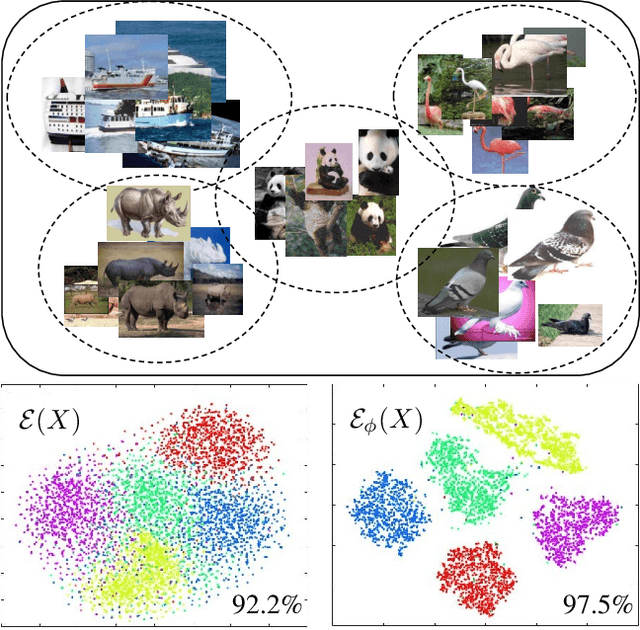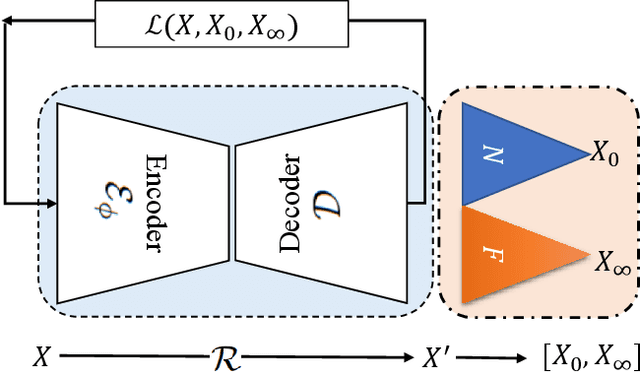Self-Supervised Representation Learning via Neighborhood-Relational Encoding
Paper and Code
Aug 27, 2019



In this paper, we propose a novel self-supervised representation learning by taking advantage of a neighborhood-relational encoding (NRE) among the training data. Conventional unsupervised learning methods only focused on training deep networks to understand the primitive characteristics of the visual data, mainly to be able to reconstruct the data from a latent space. They often neglected the relation among the samples, which can serve as an important metric for self-supervision. Different from the previous work, NRE aims at preserving the local neighborhood structure on the data manifold. Therefore, it is less sensitive to outliers. We integrate our NRE component with an encoder-decoder structure for learning to represent samples considering their local neighborhood information. Such discriminative and unsupervised representation learning scheme is adaptable to different computer vision tasks due to its independence from intense annotation requirements. We evaluate our proposed method for different tasks, including classification, detection, and segmentation based on the learned latent representations. In addition, we adopt the auto-encoding capability of our proposed method for applications like defense against adversarial example attacks and video anomaly detection. Results confirm the performance of our method is better or at least comparable with the state-of-the-art for each specific application, but with a generic and self-supervised approach.
 Add to Chrome
Add to Chrome Add to Firefox
Add to Firefox Add to Edge
Add to Edge